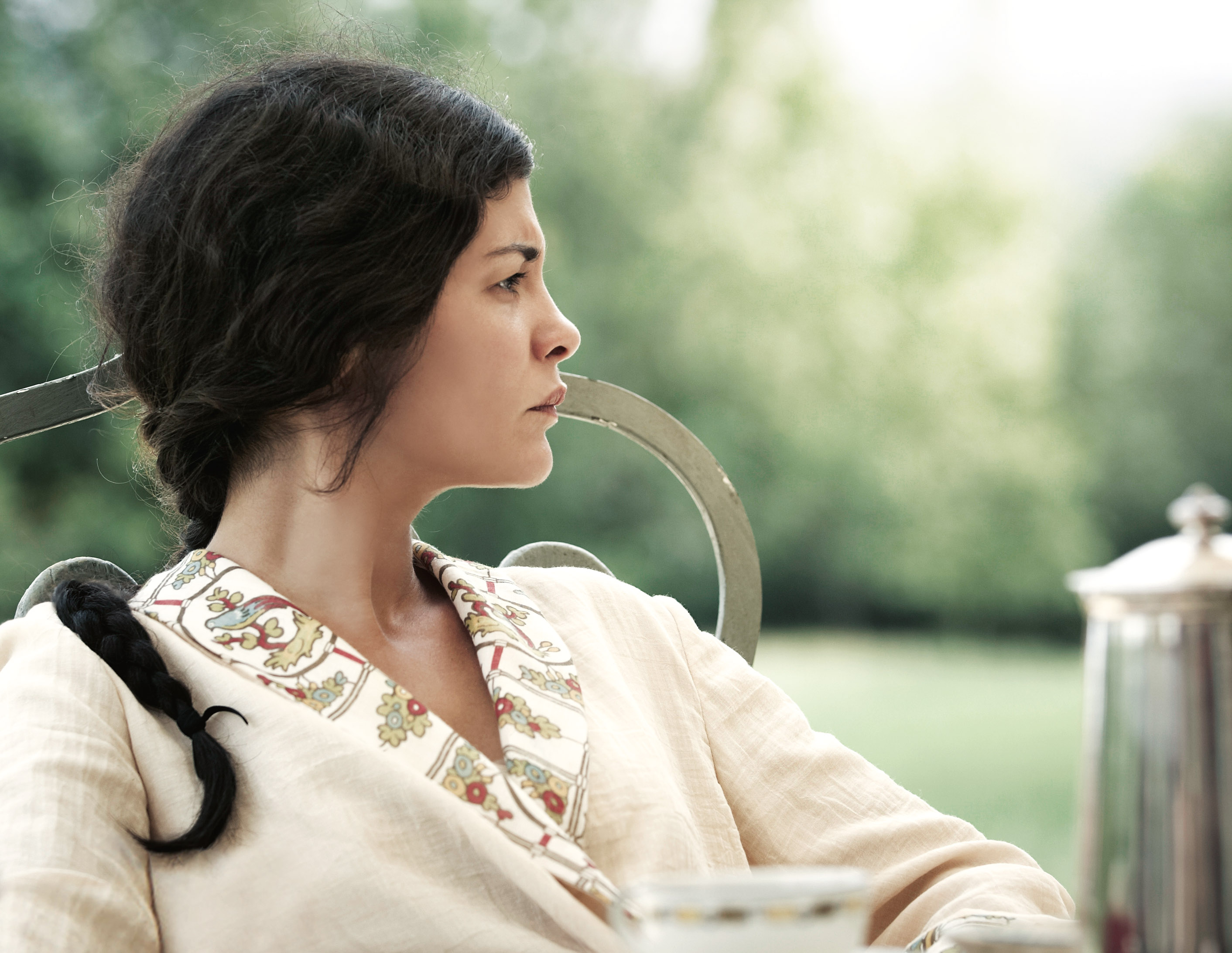Therese
Opens Fri., Sept. 6 at Varsity. Not rated. 110 minutes.
Back in the first dewy shine of Amelie (2001), I would not have anticipated beginning a review with the words “Audrey Tautou is frankly too old to [fill in the blank].” But the years pass. And so: Audrey Tautou is too old to play the early scenes here as a teenage bride in 1920s France. Thankfully, the movie advances in time, and the still-youthful Tautou (she’s 37) very effectively brings her eerie presence to bear on an enigmatic, controlled, supremely rational character. In this adaptation of the 1927 novel Therese Desqueyroux by the subsequently Nobel Prize-winning Francois Mauriac, Therese is very far from an old-fashioned lady of literature. She enters into marriage with the practical and uncharismatic Bernard (Gilles Lellouche); their families own vast swaths of adjoining pine forests, and their union will create a profitable dynasty. Poker-faced Therese seems all right with this, although she becomes troubled by news that Bernard’s sister (Anais Demoustier)—her lifelong bestie—has launched a torrid affair with a callow-yet-hunky young man. This is a prelude to the section that occupies much of the film, as Therese ponders the exact dosage of her husband’s anemia medicine, which contains arsenic. He trusts her to keep track of how much he’s ingested, and she begins to measure her future in spoonfuls of the stuff.
We have to guess at the last part, because although a homicidal impulse enters Therese’s actions, the film does not provide reasons for her behavior. This reticence will make Therese a tough sell—it’s neither a feminist liberation scenario nor a full-blooded murder melodrama—but it’s the finest aspect of the movie, scrupulously executed by veteran director Claude Miller, a onetime assistant to Francois Truffaut. (He directed a lovely Truffaut screenplay, The Little Thief, and died shortly after completing Therese.) A somber mood prevails over this project, as though to remind us that the decisions made by these characters really are a matter of life and death—and maybe all decisions are.
Therese begins as a familiar kind of French costume picture, but its grim undercurrent marks it as something else. I won’t make gigantic claims for it, but I admire its narrow focus and its refusal to play up its leading lady’s charm. It’s unlikely to delight Tautou’s fans, and that speaks well of it.
film@seattleweekly.com







